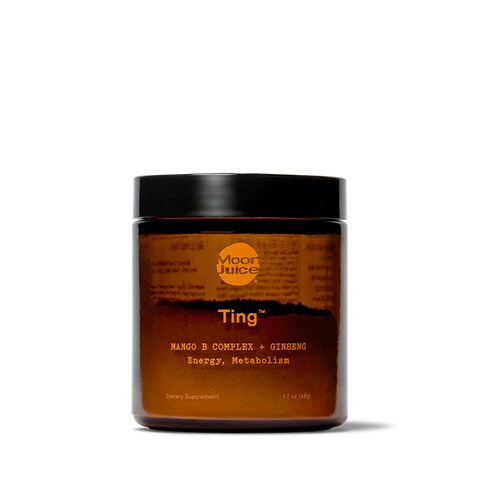Dealing with low energy, low libido, or brain fog? How about thinning hair, bloating, or restless nights? In many cases, these instances point to signs of a slow metabolism. The chemical process of metabolism converts food to energy to help power your muscles, nerves, and brain. Thus, slow metabolism can manifest in the aforementioned signs, indicating that yours could use a lifeline.
Fortunately, a combination of dietary and lifestyle adjustments can help you boost metabolism naturally. In this guide, we’re covering how to boost metabolism with 10 foolproof tips.
1. Cardio
Exercise is crucial for everyone, as consistent physical activity will support physical and mental health. Plus, cardio can also help boost metabolism naturally. Per a 2018 review in Progress in Cardiovascular Diseases, exercise is linked to:
- Improvements in cardiometabolic risk factors
- A lower risk of poor cardiovascular health
- Weight maintenance and/or weight loss
Based on recommendations from the American Heart Association, minimum weekly recommendations for cardio (aka aerobic activity) are:
- 150 minutes of moderate-intensity exercise
- 75 minutes of intense exercise
You can easily mix and match these recommendations and spread them out over the week. For instance, perhaps you’ll want to attend an energizing vinyasa yoga class one day and run outdoors on the next.
Tip: You may want to try out high-intensity interval training (HIIT) — such as mixing short, fast sprints into your jog. A small 2022 study in healthy, physically active men suggests that HIIT “boosts the amount of proteins in skeletal muscle that are essential for energy metabolism and muscle contraction.” In other words, integrating HIIT into your workouts may be your best bet on the cardio front to seriously boost your metabolism.
2. Strength Training
Also known as resistance training, strength training involves using your body weight or weighted props to help develop muscle mass and physical strength. Muscle mass is a crucial factor that impacts your metabolism — and fortunately, it’s one that you have the ability to control. Higher muscle mass leads to a higher metabolic rate, and vice versa.
Strength training is a powerful strategy to boost metabolism naturally, as well as stave off the natural, gradual loss of muscle mass over time. Per a 2012 entry in Current Sports Medicine Reports, a 10-week regimen of resistance training may:
- Increase resting metabolic rate by 7 percent
- Increase lean weight by 1.4 kilograms (3 pounds)
- Reduce body fat weight by 1.8 kilograms (4 pounds)
Weight-bearing exercises can also improve everything from insulin sensitivity and cardiovascular health to overall physical performance, cognition, and self-esteem.
3. Protein
Naturally, the foods you eat can make or break your efforts to improve metabolism. To significantly move the needle to burn more calories, it’s worth eating more foods that are known to boost metabolism — including high-quality protein.
Per a 2021 study in The American Journal of Clinical Nutrition, high-protein diets increase energy expenditure in healthy adults. (Basically, this means that you’ll burn calories more quickly.) Quality sources of protein to lean on include beans, nuts, eggs, fish, and lean poultry.
4. Metabolism-Boosting Spices
A 2023 review in Alternative Therapies in Health And Medicine shares that the following flavorful spices can improve metabolism in different ways:
- Red pepper positively influences thermogenesis (aka the heat produced and expended by this spicy food contributes to calorie burning)
- Ginger positively influences energy metabolism and weight control
- Turmeric — or rather its active constituent, curcumin — inhibits a cellular conversion process that can negatively impact metabolism
Cinnamon is another spice you’ll want to keep in your pantry. Cinnamaldehyde (a flavonoid that gives cinnamon its signature flavor and odor) has been shown to improve metabolic health by triggering fat cells to burn energy through a process called thermogenesis. In short, this instigates a greater energy burn.
Take care to incorporate these spices into your drinks and dishes to boost metabolism naturally and enjoy their delicious flavors, to boot.
5. Green Tea
Many investigations on how to boost metabolism emphasize drinking green tea daily. Green tea is among the healthiest drinks on the planet, largely since it’s a rich source of antioxidants. Chief among them are catechins — a specific one of which, called epigallocatechin gallate (EGCG), can increase metabolism and burn body fat. Paired with green tea’s natural caffeine content, EGCG can increase energy expenditure and counteract the reduction in metabolic rate that can result during weight loss.
6. Nurture Your Gut
Gut health strongly influences total health, so it pays to be good to your microbiome. A 2022 review in The American Journal of Clinical Nutrition declares gut microbiota play a fundamental role in nutrition and metabolism, and may directly affect metabolic risk factors. The composition of gut bacteria can affect glucose regulation, insulin resistance, and the ability to convert carbohydrates and fats into energy.
A healthy gut is a balanced one that’s abundant in friendly gut bacteria. Winning dietary strategies to promote gut health include:
- Eating fermented and probiotic-rich foods such as kimchi, kefir, and sauerkraut
- Getting enough fiber in your diet via healthy food like fruits, veggies, chia seeds, and beans
- Avoiding sugar-rich and ultra-processed foods, which allow bad bacteria to thrive
7. Intermittent Fasting
Intermittent fasting (IF) has been trending in the wellness and biohacking worlds over the past few years, and it’s easy to see why. A 2022 entry in the journal Nutrients recaps findings demonstrating several impressive benefits of intermittent fasting, including:
- Improved metabolism, in part due to favorable metabolic effects by inducing the metabolism of fatty acids to ketones
- Increased healthspan (i.e., the period of time in which a person is generally healthy)
- Increased longevity
Note: Some versions of fasting may naturally involve restricting calories — but you certainly don’t have to go this route. You can prioritize the version of IF that restricts time (i.e., the period in which you eat or don’t eat, such as the 16/8 method) instead of limiting calorie intake. All the while, you’ll ensure that you get enough food and nutrients in your system to stay healthy, satiated, and energized. In fact, this route is optimal compared to severe calorie restriction, as the latter can actually slow down your metabolism and lead to poor health outcomes.
8. Stress Management
Stress doesn’t only take a toll on your mind and mood; it can also mess with your metabolism. On top of the psychological and behavioral ramifications of stress, research shows that high levels of stress impacts metabolic response by instigating unfavorable changes in:
- Energy expenditure
- Blood sugar
- Body composition
Moreover, cortisol — aka the stress hormone — is a key hormone involved in metabolism. While cortisol is normal and healthy in small amounts, chronically high levels can prompt people to overeat (typically unhealthy fare) as well as store excess fat instead of burning it. Over time, high cortisol levels can also lead to insulin resistance, which can have a cascade of negative effects for metabolic health.
To keep stress under control and therefore improve metabolism, find healthy ways to invoke calm. The best methods will vary from one person to the next. You can choose to go inward by spending time alone, meditating, or journaling. Otherwise, you may find that being active via exercise, spending time with friends, and organizing are surefire ways to unstress.
9. Quality Sleep
Getting enough high-quality sleep is crucial to support aspects of well-being ranging from energy and mood to appetite and alertness. A 2019 study in the Journal of Lipid Research shows that even a few days of poor sleep not only make people feel less full and satiated after eating a meal, but also metabolize fat differently. In addition, being misaligned with your circadian rhythms — aka your internal clock or sleep-wake cycles — can disrupt metabolism and increase the risk of developing metabolic disorders.
To increase metabolism, boost energy naturally, maintain a healthy weight, and feel and function your best at large, it’s essential to get high-quality shuteye night after night. The markers of good sleep hygiene include:
- Going to sleep and waking up at consistent times
- Getting 7 to 9 hours of sleep each night
- Avoiding stimulating activities, foods, and drinks before bedtime
- Keeping your bedroom dark, quiet, and cool
10. Take Supplements to Boost Metabolism
As we can see, there are a myriad of methods available to help you get a fast metabolism. One final tip to enhance your metabolic rate is to take high-quality supplements, such as Ting™. This caffeine-free supplement helps metabolism with a B Vitamin Complex to help turn food into cellular currency and empower metabolic function.*
It also includes:
- Methylated B12 to support healthy serotonin production*
- Adaptogenic Ginseng to support brain function and short-term memory*
Consider this non-stimulating yet powerful blend the ultimate wake-up call for a sluggish metabolism and mind. By mixing a half teaspoon into 16 ounces of water each day, you’ll benefit from more energy, improved metabolic function, and a better mood in no time.
Sign Up, Nerd Out
Get wellness tips, education, and recipes
delivered straight to your inbox.
Get wellness tips, education,
and recipes delivered
straight to your inbox.
Sources
- https://pubmed.ncbi.nlm.nih.gov/30003901/
- https://www.heart.org/en/healthy-living/fitness/fitness-basics/aha-recs-for-physical-activity-in-adults
- https://www.sciencedaily.com/releases/2022/05/220531151946.htm
- https://pubmed.ncbi.nlm.nih.gov/22777332/
- https://pubmed.ncbi.nlm.nih.gov/22777332/
- https://pubmed.ncbi.nlm.nih.gov/33789250/
- https://www.sciencedaily.com/releases/2017/11/171121095145.htm
- https://www.sciencedirect.com/science/article/abs/pii/S0031938410000703
- https://pubmed.ncbi.nlm.nih.gov/36026526/
- https://www.sciencedaily.com/releases/2016/11/161121094111.htm
- https://www.ncbi.nlm.nih.gov/pmc/articles/PMC8839325/
- https://pubmed.ncbi.nlm.nih.gov/24970271/
- https://www.nature.com/articles/s41398-020-0729-6
- https://www.hindawi.com/journals/ije/2014/614074/
- https://www.sciencedirect.com/science/article/abs/pii/S0889852913001151?via%3Dihub
- https://www.sciencedaily.com/releases/2019/09/190916114020.htm
- https://www.sciencedaily.com/releases/2018/07/180709152706.htm














